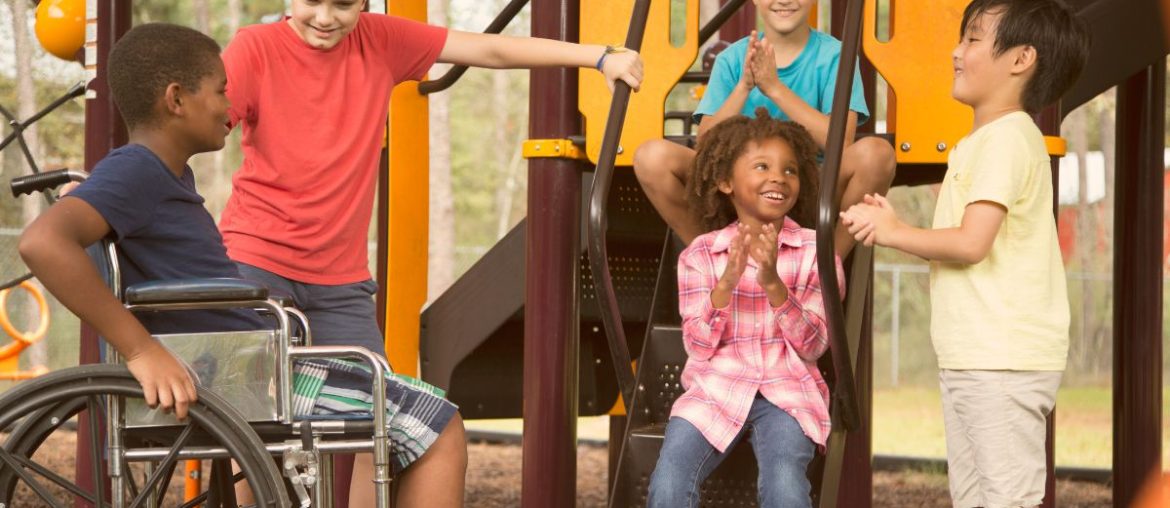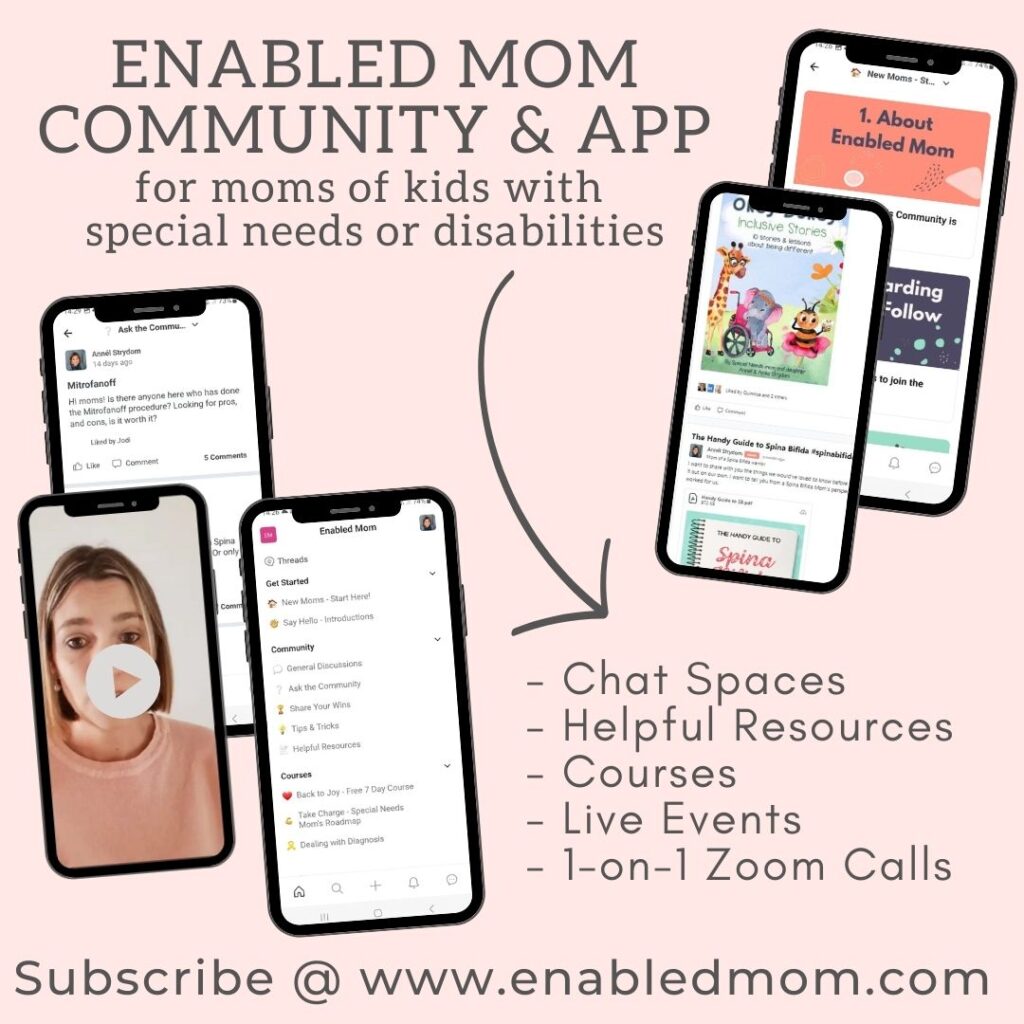Being a mom is a rewarding yet challenging journey, and when your child has a disability or special needs, it adds an extra layer of complexity to daily life. One of the concerns many moms face is ensuring that their child is included in social activities, particularly when it comes to playtime. In this blog post, we’ll explore some practical tips and strategies for encouraging inclusive play and fostering positive interactions among children, regardless of their abilities.
Education and Awareness
Begin by promoting awareness and understanding among the parents, teachers, and children in your community. Organize informational sessions, workshops, or playdates where you can share information about different disabilities and discuss the importance of inclusive play. This helps dispel myths, reduce stigma, and create a more empathetic environment.
Lead by Example
Children often mimic the behavior of adults. Encourage inclusive attitudes by modeling them yourself. When interacting with other parents and children, demonstrate kindness, patience, and acceptance. Your positive behavior will set the tone for inclusive play.
Communication is Key
Open communication is crucial in promoting inclusive play. Talk to other parents about your child’s needs, preferences, and the best ways to include them in activities. Be approachable and encourage other parents to ask questions if they’re unsure about how to include your child in play.
Organize Inclusive Playdates
Take the initiative to organize playdates that are specifically designed to be inclusive. This allows children to become familiar with one another in a relaxed setting. Plan activities that accommodate all abilities, ensuring that each child can participate and feel included.
Emphasize Similarities Over Differences
Highlight the similarities that children share, rather than focusing on differences. Encourage conversations about common interests, hobbies, or favorite games. This can help children see past any physical or cognitive differences and build connections based on shared experiences.
Provide Inclusive Toys and Games
Ensure that the play environment is equipped with toys and games that cater to a variety of abilities. Inclusive toys can be enjoyed by children of all levels of physical or cognitive development, fostering a sense of unity during playtime.
Teach Inclusive Games
Educate other children on inclusive games and activities. Share simple adaptations or modifications that can be made to traditional games to ensure that everyone can participate. This not only promotes inclusivity but also teaches valuable lessons about empathy and cooperation.
Encourage Empathy
Help children develop empathy by discussing feelings and perspectives. Encourage them to ask questions and be curious about each other’s experiences. By fostering empathy, you’re laying the foundation for genuine understanding and acceptance.
As a mom of a child with special needs, you have the power to create a positive and inclusive environment for your child and others. By promoting awareness, leading by example, and actively engaging with the community, you can help pave the way for inclusive play that benefits all children. Remember, small actions can lead to big changes, and by working together, we can create a world where every child feels valued and included.





2 Responses
Hi! I was wondering if you have any suggestions of inclusive games for a 5 year old girl who uses a wheelchair to teach her abaled friends that would be fun for all of them?
Hi Miranda! I did a blog post on this a while ago with some suggestions. Look through the list and adapt some of it to her age level. https://enabledmom.com/special-needs/some-fun-wheelchair-friendly-games/
I’m thinking maybe the scavenger hunt or bocce ball (with light enough balls) to start with? Wishing her many happy and joyful hours 🙂